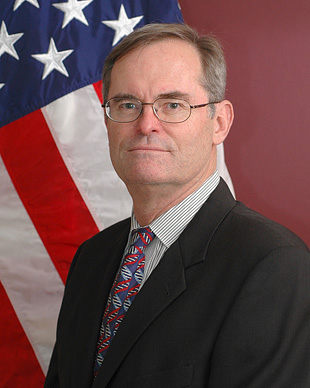Senior Scientist Retires After 30 Years of Government Service
Dr. Charles Wade, SET, Senior Scientist at the US Army Institute of Surgical Research retired April 2, after more than 30 years of government service. Wade, a physiologist, had been with the USAISR since 2004, where he led the research staff in a myriad of investigative areas related to improving combat casualty care.
Before joining the staff of the USAISR, Wade served at NASA's Ames Research Center for 14 years where he was the Senior Scientist for the Life Sciences Division, leading the space sciences biological research program. In this position, he was in charge of all the biology experiments on the International Space Station. Wade also served at Letterman Army Medical Center and Letterman Army Institute of Research, concentrating much of his research effort on fluid resuscitation.
Wade's education includes a bachelor's degree from Occidental College, a master's degree from the University of California at Davis, and a doctorate degree from the University of Hawaii School of Medicine. He also performed post doctoral work at the University of California, San Francisco.
During his illustrious career, Wade has authored over 250 peer reviewed publications on topics ranging from hemorrhage control to burn care to traumatic brain injury. Recognized internationally as a leader in trauma care research, he has also served on the editorial boards of several scientific journals, including the American Journal of Physiology and holds an appointment as Clinical Professor, Department of Surgery, University of Texas Health Science Center, San Antonio.
In recognition of his retirement, the USAISR hosted a luncheon in honor of Wade. At this luncheon, Col. Lorne Blackbourne, MD, USAISR commander, told Wade, "Throughout your more than 30 years of service to our nation and our soldiers you have continually strived to advance science, to improve combat casualty care, and to ensure that the highest ethical standards were maintained. Most importantly, however, you worked diligently to develop scientists with a thirst for knowledge and a burning desire to make a difference. As you move on to the next chapter in your life, know that you have had a profound impact on the quality of care being delivered in trauma centers throughout the world."
 An official website of the United States government
An official website of the United States government
 ) or https:// means you've safely connected to the .mil website. Share sensitive information only on official, secure websites.
) or https:// means you've safely connected to the .mil website. Share sensitive information only on official, secure websites.



